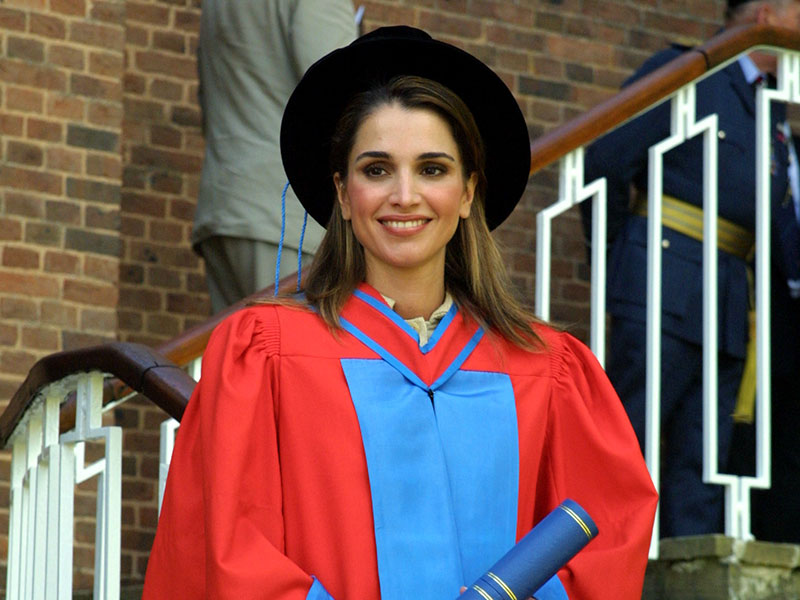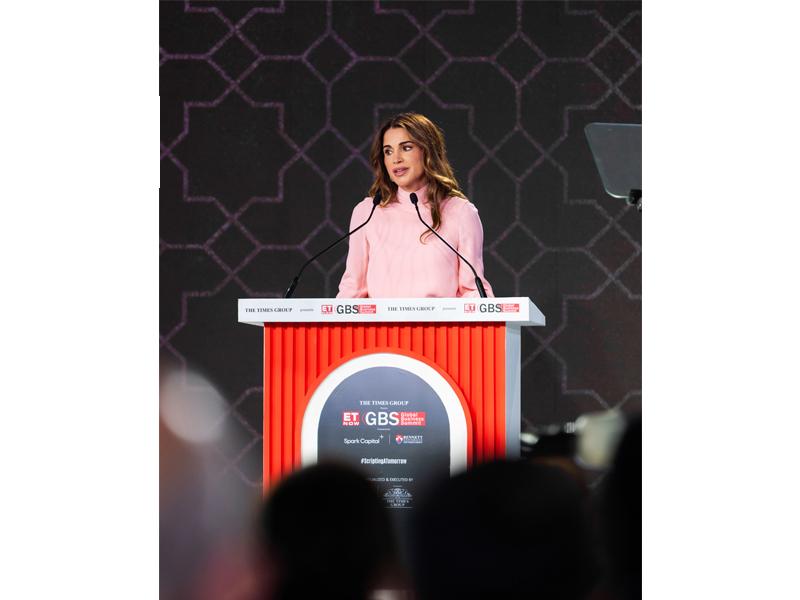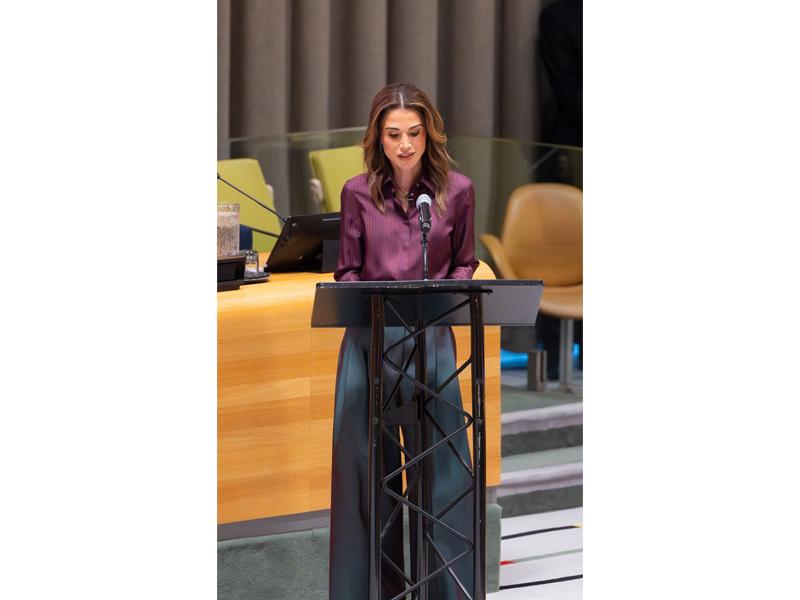Esteemed Chancellor,
Excellencies,
Students, parents, and families of the class of 2001,
Ladies and Gentlemen,
You honor me deeply with this degree, and I thank you very much for it. But the greatest honor today is that which you have brought to yourselves, and to your families and teachers who have walked with you to this podium. I am just as excited as you are, and I share your great joy, having myself just become a proud degree-holding member of the University of Exeter family. I urge you to honor the great reputation of this university by seeking ways throughout your adult lives to give back to the university some of what it has given you.
Most of you probably have no idea where you will be or what you will be doing next year. Some of you may worry about the challenges immediately ahead -- like your career opportunities, continuing studies, travel abroad, or marriage and starting a family.
Unlike most of you, though, I do have a job, and I know pretty well what I will be doing in the coming months. So here’s the only advice that I dare give you today as you ponder your immediate future: don’t worry about it.
And believe me, I know what I’m talking about when it comes to not anticipating what the future may bring.
Ten years ago, I was studying Business Administration at the American University in Cairo, looking forward to a career in the private sector. A year later, I was working in Amman in banking and the computer industry. Another year later, I was married, and, more unexpectedly, found that I had become a princess in a royal family. And as if that were not enough of a change, I then discovered that I had chosen to marry a man whose professional duties, as head of the special forces in the Jordanian army, required him to constantly jump out of airplanes and through large rings of fire -- pastimes, I might add, that he had learned and even come to enjoy during his military training in this country, thank you very much… Today, just slightly wiser, much more humble, and still on my feet, I now find myself married to… the King of Jordan.
I mention my own journey from university student to my current position only so that you will believe me when I tell you: don’t worry about tomorrow. Don’t fret about things you cannot possibly predict or even plan.
I do not suggest that you abandon yourselves to the whimsy of circumstance or blind fate. Rather, right from this moment, aim for great and mighty goals in your life. Set the bar higher than you can see. Gather all your abilities and strengths, and leap higher than you ever imagined you could leap. Expect to achieve grand and exciting feats, and treasure every achievement, large or small as it may be. Hope to experience numerous pleasures and satisfactions, and be grateful for all the experiences that life offers you.
You are among that privileged minority of young people on this earth whose adult lives are destined to be defined by promise, productivity, and many good times ahead. This is because you have been superbly trained in school to use your minds. You have been deeply molded at home and in the community to make correct moral choices. And you have been richly endowed with a mindset and a worldview that allow you to move comfortably throughout the varied but hyper-linked cultures of our planet.
As you depart the University of Exeter to embrace life at large, please keep in mind that you are equipped not only to succeed in this world, but also to change it, should you wish or dare to do so.
I suspect that every graduating class since the first university opened its doors centuries ago has heard this same charge: their generation is the best educated and the most worldly, facing the greatest ever horizons and opportunities for change.
You are different, however, because your world is different. And here’s how: the latest generation of computer servers already being manufactured can store every word ever spoken by human beings throughout history -- three times over. In the coming years, we will have access to microprocessors that contain 400 million transistors. I am sure that you and I alike could have used one of those for some of our university assignments. The point is, we will soon carry such technology in the palm of our hands.
This is what sets you apart from all previous graduating classes in history. Your lives will be defined and re-defined by the fastest pace of technological change and the deepest process of global integration ever experienced in human history.
You and your children in the coming half-century have the opportunity to bring about the fastest, most widespread improvement in living standards for billions of people around the world, through the expansion of global investment, training, and trade. Never before in the history of the world has one generation held so much promise.
Your parallel challenge, though, is to recognize what is really new and valuable in today’s world, and to appreciate what is relevant and worth preserving from the world of our parents, grandparents, and ancestors. We face the danger of being so dazzled by the sheer novelty of our world’s new technology and global linkages that we could easily lose sight of what is worth maintaining and nurturing from previous generations.
Let me share with you some more of my own experiences to explain what I mean. During my journey from university graduation to my current responsibilities, I have been constantly struck by two, somehow contradictory, factors. In every instance in my fast-changing personal, professional, and public life when I had to venture into uncharted territory, I drew strength and direction from our Arab-Islamic heritage of faith, family, and governance.
Here are some examples to explain what I mean.
When I went to the American University in Cairo, I learned as much from the rich urban traditions of ancient Cairo as I did from the modern curriculum of the university. When I married and started having children, I found that the moral dictates of our Islamic faith were the best way to fortify my children with the values of education, hard work, and respect for others that they would need to succeed in this dynamic world. As we promoted local community development through various NGOs, we found that traditional institutions -- such as family, tribe, and religion -- were among the most credible means of reaching families with information they could use to improve their well-being and role in society. We have found that we can best enhance modern concepts of democracy, human rights, and pluralism by building on our very much relevant Islamic, Christian, and Arab values.
These are examples of how we constantly draw on the strengths of our past, in order to capitalize on the opportunities of our fast-changing modern world.
So, I was not surprised when I opened the University of Exeter website and found a picture of the Khazneh, or the Treasury, at Petra, the dazzling ancient Nabataean capital in south Jordan today. Thousands of years ago, the Nabataean world, like ours, brought together several different cultural traditions through global trade and communications. The monuments, culture, language, and even religion of the Nabataeans reflect traditions from Greece, Rome, Assyria, Persia, Egypt, and Arabia. The Nabataeans prospered for half a millennium largely because they blended the best of the old and new worlds of their days. They embraced change, while respecting continuity.
People from around the world visit Jordan and admire Nabataean art and architecture, as I hope you will have the chance to do one day. We in Jordan also draw lessons from the ability of the Nabataeans to successfully navigate the diverse trade routes, political landscapes, and cultural contours of their own fast-changing, inter-connected world. Their experiences even guide many of our efforts to integrate Jordan into today’s global economy. We recognize, for example, that they prospered for centuries because they maintained a balanced economy; safeguarded water, agricultural land and other natural resources; nurtured diplomacy and shunned war with their neighbors and the great powers; invested in the skills of their people; struck a careful balance between the secular and the sacred; and respected the rights and dignity of their citizens, through quality courts and a monarchy defined by humility and service. These are not just once-upon-a-time, historical episodes. They are an enduring, perhaps universal, roadmap to healthy statehood and dignified citizenship.
As graduates of the University of Exeter, you are the latest torchbearers of this universal legacy of modernity anchored in tradition. You also carry in your minds and hearts the same values of a productive global humanism that once inspired the Nabataeans to great deeds, and that continue to guide the modern successes of Britain and Europe.
So go forth respectfully, even cautiously, always aware that you stand on the shoulders of men, women, and institutions that dared to do this before you. They have passed on their knowledge and experience to you, so that you -- now -- from this moment -- may dare to make the world a more prosperous, more equitable, and better place.
I thank you again for this honor that you have bestowed upon me, congratulate you on your achievement, and wish you well in all your endeavors.
Congratulations and ‘Alf Mabrouk’ to you all…



